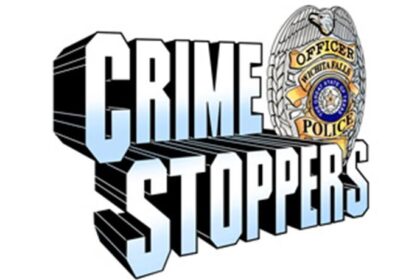Donating your car to charity in California can be a generous act, benefiting both worthy causes and yourself through potential tax deductions. However, the unfortunate reality is that fraudsters sometimes exploit this charitable spirit. This article aims to educate you about common car donation scams and equip you with the knowledge to ensure your donation truly makes a difference.
Common Car Donation Fraud Tactics
- Misrepresentation of Charity: Scammers may pose as legitimate charities or misrepresent their affiliation with well-known organizations.
- Example: A fraudulent organization claims to support veterans but pockets the proceeds from donated cars.
- Inflated Tax Deduction Promises: Donors may be misled about the potential tax deduction value of their vehicle, leading to unrealistic expectations.
- Example: A scammer guarantees a $5,000 tax deduction for a car worth significantly less.
- Lack of Transparency: Fraudulent operations often lack transparency in their processes, making it difficult to track your donation or understand how it will be used.
- Example: A charity fails to provide a receipt or documentation regarding the sale or use of your donated car.
- Pressure Tactics: Scammers may use high-pressure sales tactics to rush you into making a donation without giving you time to research or consider other options.
- Example: A representative insists on immediate pick-up of your vehicle, creating a sense of urgency.
Let’s delve deeper into some additional common car donation fraud tactics to watch out for in California:
5. Tow Truck Scams: Be cautious of unsolicited offers to tow your vehicle for free. Some scammers use this as a way to gain access to your car and then disappear with it.
- Example: You receive a call from an unknown towing company offering free pick-up of your donated car. Once they have your vehicle, they sell it for profit instead of delivering it to the charity.
6. Phony Websites and Social Media Pages: Scammers may create convincing websites or social media pages that mimic legitimate charities to solicit donations.
- Example: A fraudulent website uses the name and logo of a well-known charity but provides a different contact number and bank account information.
7. Misleading Advertising: Some organizations may use deceptive advertising tactics to attract donors, such as promising unrealistic tax deductions or exaggerating the impact of your donation.
- Example: An advertisement claims that your car donation will directly fund cancer research, when in reality, only a small percentage of the proceeds go towards that cause.
8. Bait-and-Switch: In some cases, scammers may agree to accept your car donation but then try to pressure you into donating a different vehicle or making a cash contribution instead.
- Example: A representative arrives to pick up your car but then claims it’s not in suitable condition for donation and tries to convince you to donate a newer model or make a cash donation.
9. Title Issues: Scammers may fail to properly transfer the title of your donated vehicle, leaving you liable for any future parking tickets, toll violations, or accidents.
- Example: You donate your car but never receive confirmation that the title has been transferred to the charity. Months later, you start receiving notices for unpaid parking tickets incurred by the new owner.
Remember: It’s important to remain vigilant and cautious when donating your car to charity. If something seems too good to be true or you feel pressured in any way, trust your instincts and walk away. Always do your research, ask questions, and ensure you are dealing with a reputable organization before handing over your vehicle.
10 Questions to Ask Before Donating Your Car
- Is the charity registered with the California Attorney General’s Registry of Charitable Trusts?
- Can they provide an IRS Determination Letter?
- What is their process for transferring the car’s title?
- Do they offer a written agreement detailing the donation terms?
- How will the proceeds from the car sale be used?
- What is their estimated timeline for towing the vehicle?
- Are there any fees associated with the donation?
- Can they provide references or testimonials from other donors?
- How long has the organization been in operation?
- What percentage of donations goes directly to charitable programs?
Protecting Yourself from Car Donation Fraud
- Thorough Research:
- Verify the legitimacy of the charity using resources like the IRS Tax Exempt Organization Search tool.
- Research the charity’s reputation and track record through online reviews and independent charity rating organizations.
- Clear Communication:
- Ask questions about the donation process, how the proceeds will be used, and what documentation you will receive.
- Be wary if the organization is evasive or unwilling to provide clear answers.
- Secure Documentation:
- Obtain a written receipt detailing your donation, the vehicle information, and the charity’s tax identification number.
- Keep copies of all communication and documentation related to your donation.
- Avoid High-Pressure Tactics:
- Take your time to make an informed decision.
- Do not feel pressured to donate immediately or provide personal information without proper consideration.
Where to Report Car Donation Fraud in California
If you believe you’ve been a victim of car donation fraud or suspect a charity of fraudulent activity, it’s important to report it to the appropriate authorities:
- The California Attorney General’s Office:
- The Attorney General’s Office is responsible for overseeing charitable organizations in California and investigating complaints of fraud. oag.ca.gov
- How to report:
- File a complaint online through their website.
- Call their dedicated charities complaint hotline.
- Mail a written complaint to their office.
- Be prepared to provide:
- Your contact information.
- Details about the charity involved (name, address, contact information).
- A description of the fraudulent activity or suspicious behavior.
- Any supporting documentation (emails, contracts, receipts).
- The Federal Trade Commission (FTC):
- The FTC protects consumers from unfair and deceptive business practices, including charity scams. www.usa.gov
- How to report:
- File a complaint online through the FTC Complaint Assistant.
- Call their toll-free hotline.
- Your local police department:
- If you believe you’ve been a victim of a crime, such as theft or fraud, contact your local police department to file a report.
Additional Tips & Resources:
- Contact the charity directly: If you have concerns about a specific charity, try contacting them directly to resolve the issue.
- Check the charity’s registration status: Verify that the charity is registered with the California Attorney General’s Registry of Charitable Trusts.
- Consult with an attorney: If you’ve suffered financial loss due to fraud, consider seeking legal advice.
- Spread the word: Share your experience with others to help prevent them from falling victim to similar scams.
Remember: Reporting car donation fraud is crucial to protect yourself and others from becoming victims. By taking action, you can help hold fraudulent organizations accountable and ensure that charitable donations reach their intended recipients.
Conclusion
Donating your car to charity in California can be a rewarding experience when done safely and through legitimate channels. By remaining vigilant and following the tips outlined in this article, you can protect yourself from fraud and ensure your generosity benefits those in need. Remember, informed donors are empowered donors!
By arming yourself with knowledge and taking proactive steps, you can make a positive difference in your community while safeguarding yourself from potential scams.
Remember: Sharing is caring! If you found this article helpful, please share it with your friends and family to help protect them from car donation fraud.

















